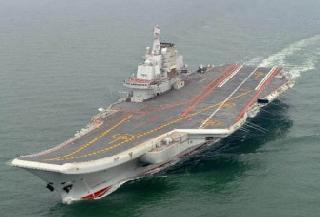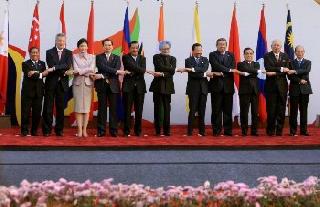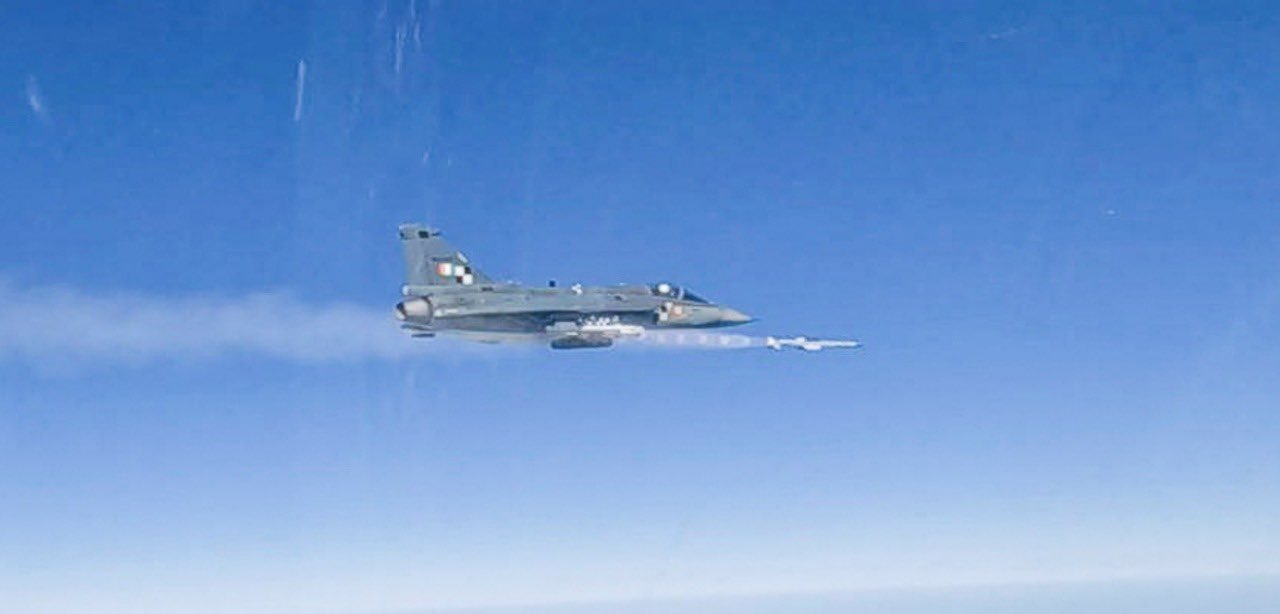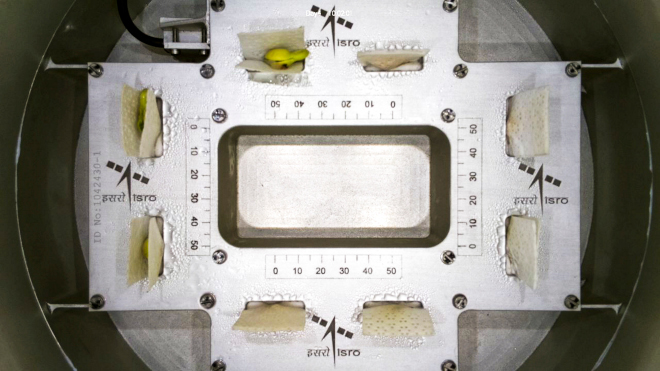
China's sole aircraft carrier Liaoning - a non-nuclear former Soviet ship - was commissioned in Sept. 2012. A Xinuha/Chinese MoD photo
BEIJING (PTI): China possesses the ability to build nuclear-powered aircraft carriers but should not start 'recklessly' expanding before sorting out issues relating to application of nuclear technology, a defence expert has said.
The comments followed reports that China plans to build nuclear power aircraft carriers in future to follow up the first carrier, which is not nuclear-powered, commissioned recently converting the hull of a former Soviet ship into a carrier platform.
"China now has the ability to build high-power aircraft carriers but should not recklessly carry out construction," Li Li, professor with National Defence University, told the state-run Global Times.
"There are a lot of things to think about clearly first, such as nuclear power technology. Before solving all high-end technology issues, it is inappropriate to blindly start construction. China has ability to take the next aircraft carrier to a higher level," Li Li said.
Some Russian strategic analysts recently spoke of China's plans to build big nuclear-powered carriers even as Russia itself is carrying out research to build big nuclear-powered aircraft carriers which can accommodate 80 fighter planes.
About the combat effectiveness of the Chinese Army, Li said that China has already made some substantial progress in terms of new equipment, judging from the disclosure of heavyweight equipment since 2006.
"The level of training of the armed forces, especially combat training, has been greatly improved. Nevertheless, we still have to make improvement in terms of understanding the high-tech war," she said.
With her experience of long-term research on the development of weaponry worldwide, Li said whatever higher stage that the war may develop into, the essence is still the conquer of high-tech against low-tech, behind which is a more profound kind of competition.
The development of high-tech military technology is a realistic choice for national security, she said.
Another story in the Global Times said China's maritime surveillance planes made "new breakthroughs" in technology, equipping with more advanced surveillance equipment, which had been quickly and efficiently applied in patrolling.
The air-sea patrols are more advanced than before, Wang Xiaopeng, a scholar with the Chinese Academy of Social Sciences, said without elaborating what exact technology.
Due to institutional problems and lack of advanced technology, the previous patrols were mainly carried out in offshore areas, he said.
"They involved in salvage at sea and pollution regulation, rather than maintenance of the territorial sovereignty and administrative jurisdiction," he said.
A Chinese maritime patrol plane made a brief appearance over the disputed islands with Japan recently and left before Japanese fighters scrambled into space.
 Previous Article
Previous Article Next Article
Next Article













The Indian Air Force, in its flight trials evaluation report submitted before the Defence Ministry l..
view articleAn insight into the Medium Multi-Role Combat Aircraft competition...
view articleSky enthusiasts can now spot the International Space Station (ISS) commanded by Indian-American astr..
view article